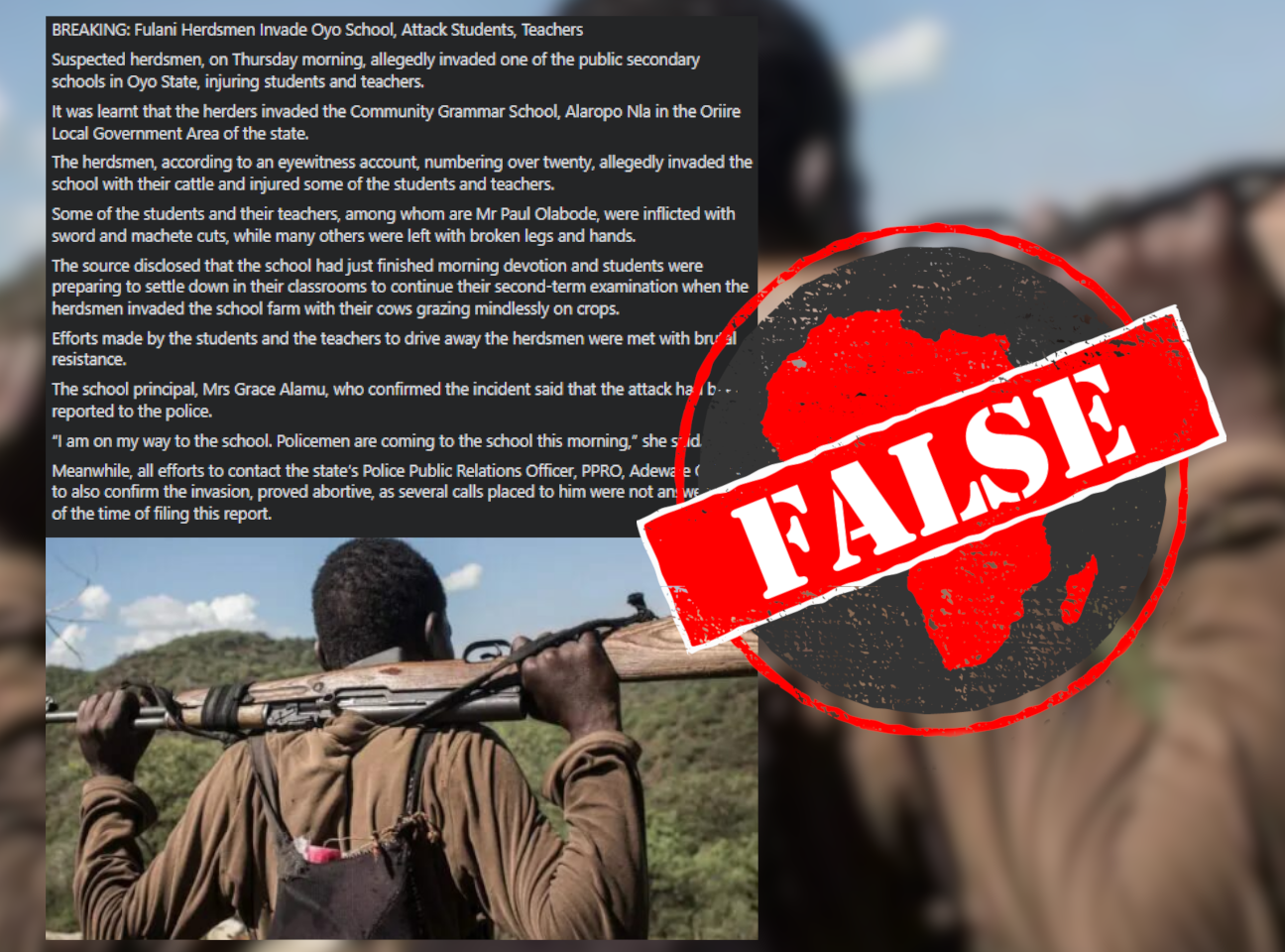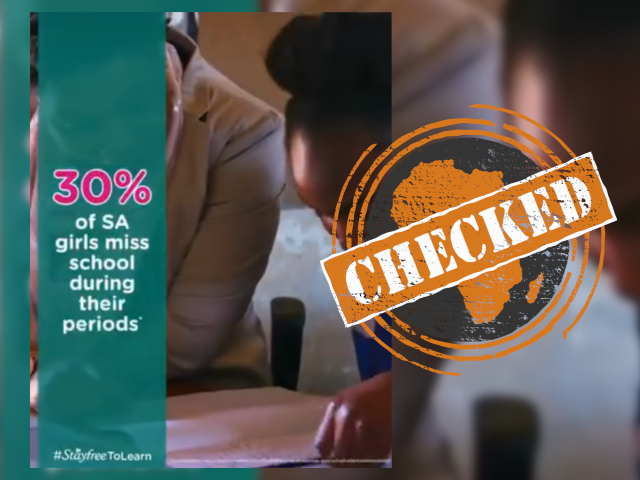IN SHORT: Online claims that a secondary school in Nigeria was attacked by members of the Fulani ethnic group are false, police say.
Fulani settlers invaded a school in Oyo state in southwest Nigeria, according to a post shared on Facebook in March 2023.
The Fulani are a widely dispersed group of mainly Muslim cattle herders, scattered across West Africa.
In Nigeria Fulani groups have at times been accused of causing conflict. But some Fulani communities have in turn accused the media of stereotyping them.
The post reads in part: “Suspected herdsmen, on Thursday morning, allegedly invaded one of the public secondary schools in Oyo State, injuring students and teachers.”
It says the school is the “Community Grammar School, Alaropo Nla in the Oriire Local Government Area of the state”.
It continues: “The herdsmen, according to an eyewitness account, numbering over twenty, allegedly invaded the school with their cattle and injured some of the students and teachers.”
The claim was also republished in other Facebook posts.
There have been reports of Fulani settlers invading schools and communities in the country, but is it true that they attacked a school in Oyo state in March 2023?

State police spokesperson denies rumours
On 30 March, the spokesperson for the Oyo state police, Adewale Osifeso, said the news was false.
He said a group of Fulani came to graze their cattle near the school and didn't invade or hurt anyone.
Republish our content for free
For publishers: what to do if your post is rated false
A fact-checker has rated your Facebook or Instagram post as “false”, “altered”, “partly false” or “missing context”. This could have serious consequences. What do you do?
Click on our guide for the steps you should follow.
Publishers guideAfrica Check teams up with Facebook
Africa Check is a partner in Meta's third-party fact-checking programme to help stop the spread of false information on social media.
The content we rate as “false” will be downgraded on Facebook and Instagram. This means fewer people will see it.
You can also help identify false information on Facebook. This guide explains how.



Add new comment